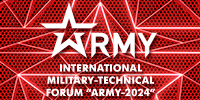Stankoprom Holding being a part of Rostec State Corporation made a presentation of the plan of building a cluster for the tooling produce manufacture.
By 2025 it shall result in nearly full liberation of Russian sector of metal processing from dependence on imported products.
On the brink of extinction?
One of the most acute problems in the sphere of machine-tool industry is the task of import substitution of metal-cutting tools. So, an official release of the conference “Import Substitution in the Critical Segment of Tooling Produce: Hard-Face Replacement Multifaceted Plates and Rotary Cutting Tools” stated that a year ago the import share in the segment in question had equaled 85%. As of the present day it has increased even more, up to 90%.
It was noted by the conference participants, that these indices in various production spheres are approximately the same and the definition “critical” characterizes the existing situation without prejudice. The segment is on the brink of extinction, which is an impressive threat for the country under conditions of the external political pressure.
“Actually, the tooling is the bread of the industry”, clarifies Georgy Borovsky, VNIIIINSTRUMENT General Director. “If we close import deliveries today, the high-tech machine tools will stop in less than a month”.
Nevertheless, Russia is in possession of all necessary resources to restore the chain: beginning from natural resources up to personnel who has not yet lost its workmanship.
After removing sunshades
However, upon a precise scrutiny of the existing situation in the field of tools production one can find positive features as well. Evgeny Polkanov, the First Deputy General Director of Stankoprom pointed out, “None the less it is impossible to allege that we have the “virgin land” in front of us, sound forces and creative initiatives have been preserved in the production segment”.
In particular, Kirovograd hard alloys plant (KZTS) holds the market positions. The types of tools produced at the experimental level by Virial company would easily compete with models produced in Europe. The company is ready to launch industrial production of these tools today. What is different about it is that there is no sufficient demand formed so far at the level of domestic processing industry.
According to Vladimir Rumyantsev, Virial General Manager, his plant has been ready to begin building new production facilities no later than this spring, but the crisis phenomena intensified. Therefore, today it is conceptually impossible to launch large-scale projects without state guarantees. The expert underlines, “The state guarantees are required not only at the construction stage, but in the course of market organization as well”.
However, the situation changes here as well. Oboronprom Corporation changes over actively to the leading-edge metal processing technologies today, the other segments of metal processing “make their way to it” too.
Accordingly, the Ministry of Industry and Trade of the Russian Federation, Rostec and Stankoprom have begun preparing a serious program of import substitution in the sphere of machine-tool building. It will be logical to begin from the tools range.
Evgeny Polkanov emphasized, “We are determined to establish an innovation cluster of import-substitution production. It is necessary to restore the entire process chain: from the raw material base to final product manufacture”.
In other words, after a specified period of time a cluster of tooling produce manufacture shall appear in the country. It is expected at Stankoprom, that they will succeed to provide the domestic manufacturers with tools by 60% before 2020 and by 90% before 2025.
Plans and money
Evgeny Polkanov said, “The idea is now at the level of Request for Proposal. We shall hand over an investment project to the Ministry of Industry and Trade of the Russian Federation by summer”.
The implementation of the program will make it possible to effect technical upgrade of enterprises of the tooling and hard-alloy industries and organize production-related cooperation including manufacturers of the source powders, tool-making hard alloys, one-piece rotary and built-up cutting tools.
Probably, this plan will acquire in future a status of the Federal Target Program. Meanwhile, the project budgeting is supposed both from the Federal budget and from regional budgets. But fortunately, the regions realize the necessity of raising industrial production facilities.
In particular, KZTS received a subsidy amounting to 50 mln roubles from the regional treasury in January. This money shall be spent also for modernization of the production chain for manufacturing powders for hard alloys. Alexei Orlov, Vice Premier of Sverdlovsk Region has commented the subsidy allotment, “Even today KZTS meets the demands of the region’s enterprises in tools, which have been delivered from the European countries earlier”.
Understandably that it is impossible to effect the industry revival using only “regional” millions. At the initial stage the process of cluster establishment is estimated at 9 bln roubles at Stankoprom. The project budgeting shall amount to 20 bln roubles, taking into account full life cycle, including extraction of raw materials.
According to Evgeny Polkanov, it was initially planned to base the entire cluster in Saint Petersburg. Though later an idea of abandoning territorial restrictions prevailed. Accordingly, three sites will appear in the project: Virial company (Saint Petersburg), Kirovograd hard alloys plant (Sverdlovsk Region) and Pobedit plant (Vladikavkaz). Evgeny Polkanov explained, “We will distribute the range of products between the manufacturers”. According to Evgeny Polkanov, KZTS and Pobedit are awaiting very serious retrofitting and upgrading in the framework of building the cluster.
It is supposed to delegate the scientific and technical support of the works to the branch institutions “VNIIINSTRUMENT” and “VNIIALMAZ” included into Stankoprom Holding.
***
This text could be finished with a somewhat “solemn” forecast. Allegedly, in 5 to 10 years the Russian-made tools can already begin “capturing” the external markets. And this will not be untrue. Potential partners from far abroad, e.g., from Brazil, have already expressed their interest to some Russian developments.
Though, let us not behave like far-out people. Let us better reproduce the words of Vladimir Rumyantsev as a summary to this text. The head of the Russian company has declared, “Statement of the problem on cluster building is substantiated and essential. I hope that the state will not turn off from this road, even if the situation in economy becomes better”. This answer is more important today than any other pretentious promises.
Pavel Cherepanov








